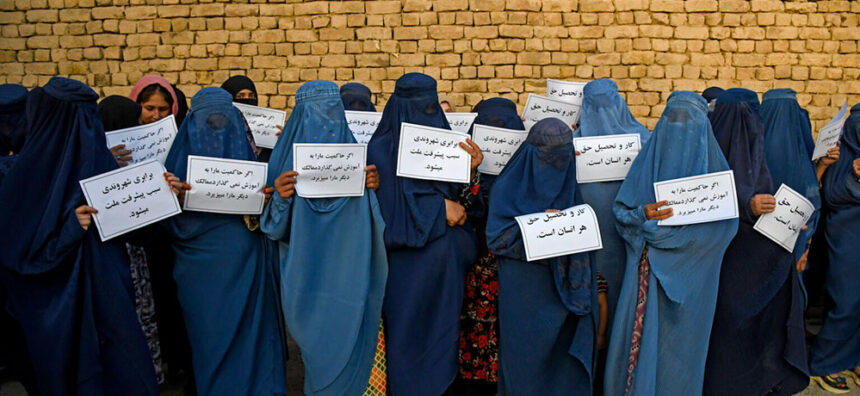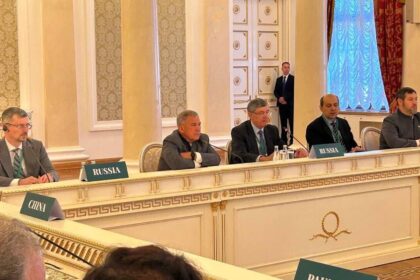RASC News Agency: In an unprecedented move that may reshape the international community’s legal response to gender-based persecution, Karim Ahmad Khan, Prosecutor of the International Criminal Court (ICC), has submitted a formal request for arrest warrants for Taliban leader Hibatullah Akhundzada and Chief Justice Abdul Hakim Haqqani. The charges crimes against humanity are rooted in the regime’s sustained, deliberate, and systematized suppression of Afghanistani women and girls since seizing power in August 2021. Filed under Article 7(1)(h) of the Rome Statute, the request specifically cites gender-based persecution, a grave offense under international law. Khan’s case is supported by a comprehensive body of evidence, including more than 100 official Taliban decrees that systematically stripped women of fundamental human rights effectively eliminating their access to education, employment, political participation, healthcare, and even their freedom of movement and speech. These directives form the legal scaffolding of what experts now refer to as “gender apartheid” a policy framework designed to erase women from public life.
Scholars from Monash University, Dr. Farhunda Akbari and Professor Jacqui True, writing in the East Asia Forum, welcomed the ICC’s action as “long overdue,” but stressed its symbolic power. “Although it is unlikely to lead to immediate arrests or trials, this is an important moral and legal milestone that acknowledges the extreme suffering inflicted on Afghanistani women,” they noted. The move, while largely symbolic in the short term, emboldens grassroots resistance against the Taliban’s oppressive regime and brings renewed international focus to a crisis that has too often been ignored or normalized. Despite these developments, observers remain cautious. The Taliban leadership, emboldened by varying degrees of engagement from states such as Iran, Pakistan, Russia, and even some Western governments including Norway, continues to operate with a disturbing level of impunity. This partial international legitimization not only undermines accountability but also emboldens the regime to entrench its patriarchal rule.
The lack of a functioning judicial mechanism within Afghanistan has further compounded the challenge of documenting and prosecuting rights violations. Thousands of victims especially women continue to suffer in silence, threatened by surveillance, incarceration, or forced disappearance. Nevertheless, many Afghanistani women have emerged as fierce advocates for justice. From clandestine classrooms to international legal forums, they are demanding global recognition of gender apartheid as an international crime, calling on the United Nations to adopt a binding treaty. However, the drafting of such a treaty has been delayed until 2027, leaving survivors without recourse for at least two more years. Human rights experts and international legal scholars argue that legal action must be coupled with coordinated global pressure, reminiscent of the international sanctions and boycotts that helped dismantle racial apartheid in South Africa. “This is a pivotal moment. The international community must choose between complicity and principled resistance,” said one international law specialist.
Concrete steps have been proposed to alleviate the suffering of women under Taliban rule. These include granting academic scholarships to Afghanistani women, expanding digital education infrastructure, providing remote work opportunities, and funding women-led NGOs both within and outside Afghanistan. Such efforts not only preserve the intellectual and economic agency of women but also offer a lifeline of hope amid a campaign of erasure. The ICC’s pursuit of justice for gender-based persecution in Afghanistan is more than a legal maneuver it is a moral indictment of a regime that has criminalized femininity. Whether this moment marks the beginning of international accountability or fades into yet another chapter of ignored atrocities will depend on how the world chooses to respond.






